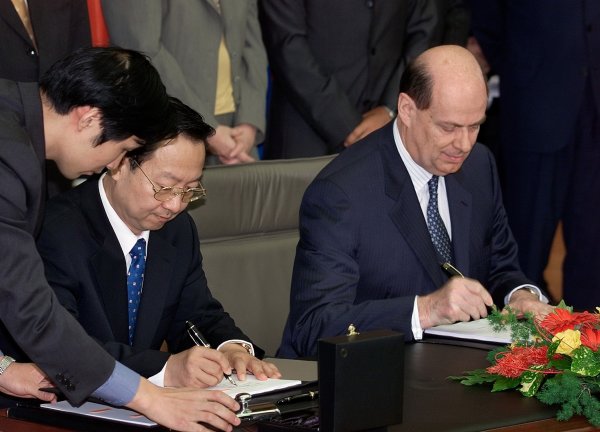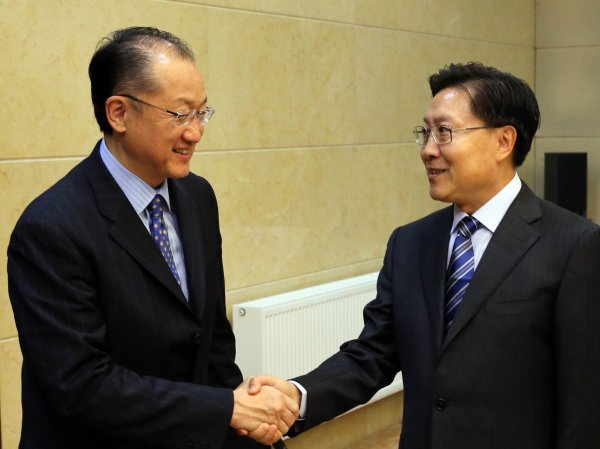Business Culture: Decision Making
Cultural Context
Even visitors who have read Sun Tzu's The Art of War will be in for a few surprises during the Chinese decision-making process. The Chinese are well known as tough negotiators whose main goal is convincing the other side to make concessions. Yet at the same time, Chinese businesspeople make decisions based on Confucianism, which aims to preserve harmony, respect, and honor.
The Chinese usually see negotiations as a fun challenge, and simply figuring out what each side really wants will take up most of the time. In the end, the Chinese make decisions based on both general principles and specific relationships.
Power Structures
The Chinese arrange their businesses in strict, formal hierarchies, with all decisions coming from the top. In most Chinese businesses and government agencies, a small number of senior managers do most of the decision making, often without consulting mid-tier or junior-level participants. Proposals under consideration must make their way through many layers of hierarchy, and it's a time-consuming process. With Western visitors in particular, the Chinese decision-making process will typically be long and complex, with many surprises and delays.
During meetings, only the senior members of the Chinese team speak. Their actual decisions are made only after both parties have determined they want to do business together, and can take a long time. Most decisions will not be made in a meeting, since the Chinese negotiator is not the final decision maker. As the Chinese allow a proposal to move up through their hierarchal ranks, the resulting bureaucratic delays often give the Chinese party the upper hand, as the visitor's party becomes impatient and makes concessions to help move the process along. Therefore, the visitor's best tactic is to remain as patient and calm as possible when delays occur.
Key Contacts
While the majority of decisions will come from the top of Chinese firms, making it a necessity to meet with high-level personnel, your patience while navigating bureaucracy shows your desire to do business together. Therefore, the visitor's display of patience with counterparts at all levels saves face for all concerned, preserving the relationships on which transactions depend. If you lose patience, and thus lose face (honor or respect), your professional reputation and chances of doing business will suffer. The Chinese commonly test potential business partners by delaying projects or negotiations simply to learn how the other party reacts to stress. In such situations, never use high-pressure tactics with any Chinese contact, or you will most likely lose the deal.
Communicating Styles
The Chinese typically use a very limited amount of body language that Westerners are used to, and it may be difficult for foreign visitors to interpret Chinese nonverbal communication. One of the most important things for the visitor to know is that the Chinese find it very difficult to say "no," as doing so may cause embarrassment and the loss of face. Many Chinese companies are so reluctant to say "no" that they use intermediaries to break any negative news. Westerners sometimes have difficulty understanding this aspect of the Chinese culture, and may interpret nodding of the head as an affirmation, when in fact it is not. The same goes for verbal expressions like, "Yes, but it may be difficult." Visitors would be wise to pay attention to key nonverbal clues such as the breaking of eye contact, looking down, or any hesitation to discuss an issue when a topic is brought up. Your Chinese contact will never tell you that you are wrong or that he or she disagrees, as this would risk losing face. By the same token, visitors should keep any and all critiques to themselves, and should never discuss negative business matters publicly.
Chinese businesspeople prefer face-to-face communications to telephone or e-mail conversations. Meetings will typically last all day, and you should expect interruptions and delays. Visitors who are accustomed to following agendas to the letter should be aware that in China, agendas are simply starting points for long discussions that include many speeches and presentations. These discussions are used to figure out what the other side really wants and what they will concede to get it. Defer to the most senior Chinese representative and use formal titles and processes during the meeting. Plan to listen to numerous speeches that may seem off-topic, but will actually give you hints about what the other person wants.
Implementing Agreements
Chinese businesspeople may seem to agree to all points of a proposal at the beginning of negotiations—yet as the discussions continue, the visitor finds that delays suddenly come up, or the visitor receives a phone call declaring that the price is too high or too low. This shows the visitor that his/her Chinese counterpart is attempting to gain concessions by playing on the visitor's impatience, or is avoiding saying outright that some aspect of the proposal cannot be accomplished. Therefore, be very careful not to move too quickly to implement a transaction that is not yet closed. Until the contract is signed, negotiations are still occurring.
Article written for World Trade Press by Kerrie Main.
Copyright © 1993—2025 World Trade Press. All rights reserved.

 China
China 



